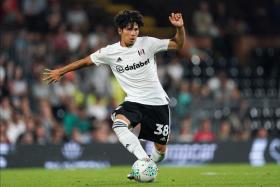Be warned, Super League vultures will return: Neil Humphreys
European Super League may be off, but fans must keep the fight to put football's soul before silverware
Everything has changed. Nothing has changed. The game's financial model is still broken.
The owners of England's "Big Six" treated their supporters with contempt yesterday and will do so again tomorrow, as soon as the chance presents itself.
Their sheepish withdrawal from the European Super League was a temporary retreat. It wasn't a surrender. Like cockroaches on a white rug, they'll be back, just as hard to look at and impossible to ignore.
And when they return, will supporters hold the line a second time? Will they remember what's at stake and who they're up against?
Take Joel Glazer. He almost revels in his outlandish greed and contempt for the masses.
He's the Manchester United co-chairman, a vice-chairman of the nearly dead European monstrosity and the American billionaire that rarely shows up at Old Trafford.
Glazer spearheaded a project that dismissed long-term devotees as "legacy fans", folks who merely built the club across decades and generations.
He was done with them.
He wanted "fans of the future" in untapped markets, bandwagon jumpers with developing economies and a dash of gullibility.
He envisioned a future of fools, devoted and unquestioning, happy to buy anything with a Manchester United tag, whether it was a pre-season exhibition or a European monopoly with no competition or value.
Now does any of this suggest the kind of reflective, empathetic individual that might acknowledge one's shortcomings and put a club's dignity before dollars?
He couldn't even if he wanted to (and he sincerely doesn't want to).
The real incentive for the European Super League wasn't profit, but loss. Clubs with some of the greatest revenues are chalking up some of the heaviest losses.
Between them, the dozen clubs earned nearly 5.6 billion euros (S$8.94b) in revenues in the 2019/20 season, according to Deloitte, a figure that was 834 million euros - or 13 per cent - lower than in the previous campaign.
But a dip in revenue barely scratches the surface. Barcelona's net debt doubled to 488m euros last June. Real Madrid's debt reached 354.3m euros. Juventus were some 357.8m euros in arrears.
DEBTS
It's no surprise that these flailing giants are yet to fully admit defeat in the European abomination.
In England, Manchester United had a debt of around £455.5m (S$843m). Arsenal's stood at £108.2m while Tottenham Hotspur's brand new empty stadium left them in need of a new manager and a whopping £604.6m to cover their debt.
Elite football is eating itself. Spiralling wages and obscene agent fees are crippling the world's wealthiest sport, a repugnant absurdity, particularly during a global pandemic.
Such perilous finances raise further awkward questions, particularly for po-faced pundits and green-eyed punters obsessed with short-term progress at any cost.
Burning jerseys for TV cameras is easy. Throwing up RIP banners on stadium gates makes a striking impact. But now the dust is settling, what else are we prepared to do or accept?
Covid-19 has reportedly cost the sport between US$6.5b (S$8.63b) to US$8.5b, so the next course of action is obvious. Who wants to go first?
Who fancies curbing those agent fees, which may see clubs miss out on key targets? Anyone keen on salary cuts, which may force superstars to look elsewhere? Surely, we'll all be happy if our clubs sit out the grotesque transfer wars to reduce costs, even if it means missing out on trophies, right? …Anyone?
From Manchester City and Chelsea's oligarchs, to the American owners of Liverpool, Arsenal and United and Tottenham's reclusive billionaire, Faustian bargains were signed many times over.
These clubs effectively closed one eye and opened the door to incorrigible greed.
Troubling questions were brushed aside, as long as trophies and Champions League places were promised. So the owners pushed the terms of this queasy pact with supporters to an obvious conclusion.
You wanted silverware. We wanted cash. The European Super League was the hideous response to an ugly dilemma.
So the owners must regroup. Their weakened financial positions dictate a second assault on the game's riches at some point.
For them, a football club is for plundering. Luckily, they were stopped, this time.
And they can be stopped again, as long as the game's true custodians never forget what a football club is really for.
READ MORE: BRITISH GOVT VOWS FOOTBALL GOVERNANCE REVIEW
Get The New Paper on your phone with the free TNP app. Download from the Apple App Store or Google Play Store now



